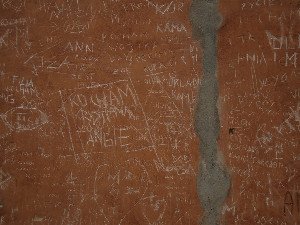Paweł Franczak
Misja dyplomatyczna Thomasa Bodleya do krajów niemieckich i Danii w 1585 r. na tle poselstw Daniela Rogersa (1585 i 1588) oraz Johna Skeena i Wilhelma Stewarta (1590)
Introduction
Misja dyplomatyczna thomasa bodleya do krajów niemieckich i danii w 1585 r. Na tle poselstw daniela rogersa (1585 i 1588) oraz johna skeena i wilhelma stewarta (1590). Zbadaj misję dyplomatyczną Thomasa Bodleya (1585) do Niemiec i Danii. Porównanie z poselstwami Rogersa, Skeena i Stewarta. Wpływ na anglo-niemieckie stosunki.
Abstract
LATE-ELIZABETHAN DIPLOMATIC MISSIONS: A STUDY COMPARING THE LEGACIES OF THOMAS BODLEY, DANIEL ROGERS, JOHN SKEEN, AND WILLIAM STEWART TO THE COURTS OF THE HOLY ROMAN EMPIRE AND THE KING OF DENMARK Sir Thomas Bodley is not known well in and outside England, unless one studies the history of libraries and correctly ties him with the eponymous Oxford library, the Bodleian. Nevertheless at the end of 17th century he experienced a brief moment of prominence as an English diplomat heading an embassy to the Holy Roman Empire and the Kingdom of Denmark. No less important were three other diplomats, sent by Queen Elisabeth I soon after him: Daniel Rogers, William Stewart and John Skeen. This article is examines those four diplomatic missions, with stress put on the legacy of Thomas Bodley’s endeavours, which marked a new era in Anglo-German diplomatic relations. The author analyses the differences in the dispatches and reports written by these Elizabethan diplomats.
Review
This article promises a fascinating exploration into a less-studied facet of Elizabethan diplomacy, specifically focusing on English missions to the Holy Roman Empire and Denmark between 1585 and 1590. The abstract successfully identifies a compelling gap in historical scholarship by positioning Sir Thomas Bodley not primarily as the founder of the Bodleian Library, but as a significant, albeit overlooked, diplomat. By comparing his endeavors with those of Daniel Rogers, John Skeen, and William Stewart, the author sets the stage for a rich comparative analysis of Late-Elizabethan foreign policy and diplomatic practices. The stated emphasis on Bodley’s legacy and its supposed role in marking a "new era in Anglo-German diplomatic relations" is particularly intriguing. The article's strengths lie in its original approach to a well-known historical figure and its commitment to comparative analysis. Unpacking Bodley's diplomatic career, alongside those of his contemporaries, offers the potential for a fresh re-evaluation of English foreign policy towards Central and Northern Europe during a crucial period. The methodology, based on an analysis of primary source material – the "dispatches and reports written by these Elizabethan diplomats" – suggests a robust empirical foundation. This kind of detailed examination of diplomatic correspondence can yield profound insights into the personalities, strategies, and challenges faced by Elizabethan envoys, and contribute significantly to our understanding of the practicalities of early modern international relations. To fully deliver on its promising premise, the article should meticulously elaborate on what constitutes the "legacy" of these diplomats and how it is objectively measured. The claim that Bodley's mission marked a "new era" requires substantial evidence, perhaps through a clear delineation of pre- and post-1585 diplomatic approaches or outcomes. Furthermore, while the abstract mentions analyzing "differences," a more explicit framework for this comparative analysis – for instance, focusing on negotiation styles, specific policy objectives, or the long-term impact of their recommendations – would enhance the article's analytical depth. Integrating these missions within the broader geopolitical context of Elizabethan England, particularly concerning the Anglo-Spanish conflict and continental religious politics, will be crucial to fully understand their significance and the extent of their "legacy."
Full Text
You need to be logged in to view the full text and Download file of this article - Misja dyplomatyczna Thomasa Bodleya do krajów niemieckich i Danii w 1585 r. na tle poselstw Daniela Rogersa (1585 i 1588) oraz Johna Skeena i Wilhelma Stewarta (1590) from Studia Historyczne .
Login to View Full Text And DownloadComments
You need to be logged in to post a comment.
Top Blogs by Rating
Whispers from the Walls: Unloc...
By Sciaria
The Silent Language of Your Bo...
By Sciaria
Are You Just a Colony? The Int...
By Sciaria
Favorite Blog
Life's Grand Algorithm: Is Bio...
By Sciaria
The Geological Secret in Your...
By Sciaria
Unlocking Life's Source Code:...
By Sciaria
Related Research
The effectiveness of using films to increase entrepreneurial interest and learning outcomes in creative product and entrepreneurship subjects
From harbour autocracies to 'feudal' diffusion in seventeenth-century indonesia: the case of aceh
Utilizing the diamond fraud theory perspective to analyze financial statement fraud
Share
Notice Board
- PERANCANGAN REST AREA TIPE A RUAS TOL SOLO-YOGYAKARTA
- PENGARUH PELATIHAN PEACE AND LOVE TERHADAP PENGETAHUAN DAN KETERAMPILAN PENANGANAN CEDERA ANKLE SPRAIN PADA ANGGOTA KNC-EMERGENCY
- DIVERGENT STRATEGIES FOR HALAL MEAT PRODUCTION: A COMPARISON OF HALAL SLAUGHTERING PRACTICES IN MUSLIM AND NON-MUSLIM COUNTRIES





